Climate
Latest

Uber, Lyft may create more CO2 emissions than trips they displace
Ride-hailing services might seem environmentally friendly by reducing the need for car ownership. However, that's not necessarily the case -- they might actually make matters worse. A newly published study from the Union of Concerned Scientists estimates that services like Uber and Lyft typically generate 69 percent more CO2 emissions than the transportation options they displace. It's even worse in urban areas, where hailed cars are more likely to have replaced cleaner options like mass transit or biking.
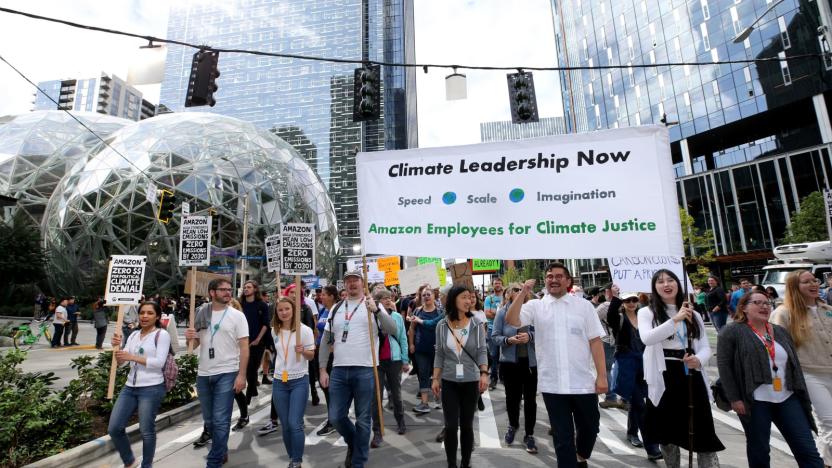
Amazon workers risk their jobs to attack the company over climate policies
"We will not be silenced," a group of Amazon employees has declared in a bold effort to protest its company climate and external communications policies. Hundreds of employees -- 364 as of this writing -- have issued public statements criticizing the the e-commerce giant's support of the oil and gas industry, as well as of climate-denying think tanks. And they did so even though they could lose their jobs.
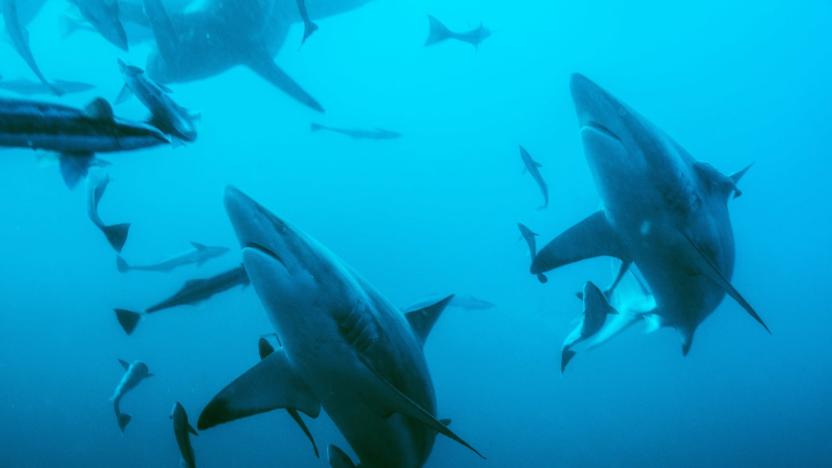
Study says climate change is starving the oceans of oxygen
The effect of climate change on oceans is likely more extensive than you think. A study from the International Union for Conservation of Nature (IUCN) indicated that climate change and the ensuing hotter water reduced the amount of oxygen dissolved into oceans by 2 percent between 1960 and 2010. While that may seem like only a modest amount, oxygen levels in some tropical regions dropped by up to 40 percent. Moreover, scientists warned that even a slight dip could be particularly troublesome for big, energy-dependent fish like marlin, sharks and tuna. Lower oxygen levels drive them to shallower water, putting them at greater risk of overfishing.
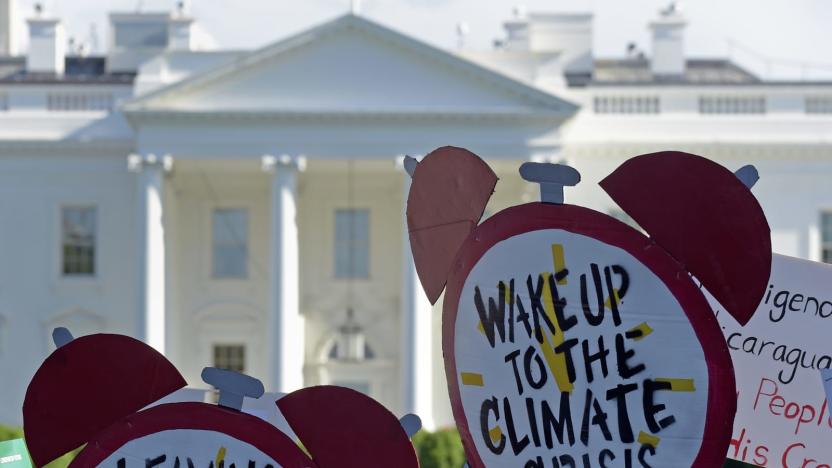
Apple, Google and Microsoft sign letter backing Paris Agreement (updated)
The Trump administration may already be pulling the US out of the Paris Agreement, but a large chunk of the tech industry wants the country to stay in... with some glaring exceptions. The CEOs of many companies, including tech giants like Apple, Adobe, Google, HP, Microsoft and Tesla, have signed a United For The Paris Agreement letter calling on the US to remain part of the effort to keep climate change in check. They argued that the international pact would "strengthen [US] competitiveness" by helping it lead the way in technologies that will usher in an eco-friendly future. It also sets "clear goals" that help with planning and spur innovation, the companies said.

IKEA will produce more energy than it consumes by 2020
Many companies are pouring money into renewable energy, but how many can say they're producing more than they need? IKEA thinks it will, at least. Its holding company Ingka revealed that IKEA will generate more renewable energy before the end of 2019 than the energy its stores use. The firm only expected to draw even by 2020. The furniture chain added that it had invested about $2.8 billion in solar and wind energy over the past decade, and told Reuters that it intended to continue funding that renewable tech, including two stakes in American solar farms this week.

After Math: Being better than being best
As protesters taking part in the Global Climate Strike shut down cities last Friday, a number of tech industry firms announced their own efforts to decrease their carbon footprints and improve the environmental stewardship of their operations. Here are a few of the highlights.
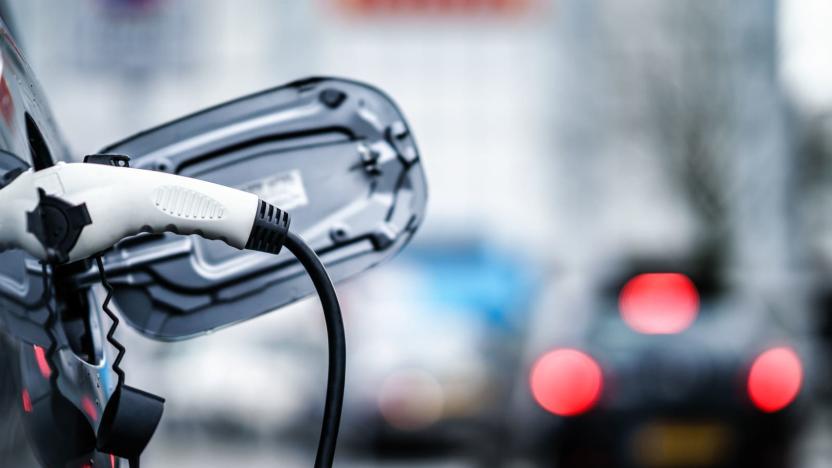
Bipartisan highway bill proposes $1 billion for EV charging corridors
Today, a bipartisan group of senators are introducing the largest highway legislation in history. The America's Transportation Infrastructure Act of 2019 proposes investing $287 billion over five years in federal transportation projects. While it includes standard measures like funding for highways and bridges, at least a few billion dollars are slated for reducing carbon emissions and installing EV chargers along highway corridors.
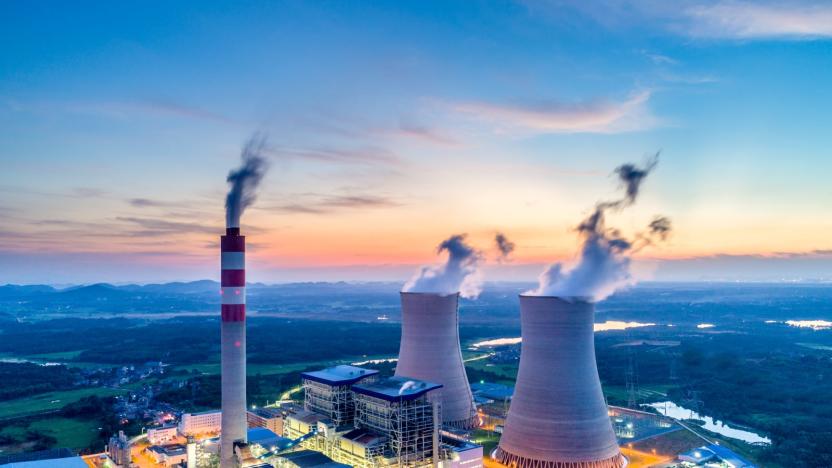
Current CO2 emissions will heat up the Earth by more than 1.5˚C
Even if we stop building power plants, factories, vehicles and home appliances immediately, we're on track to increase the global temperature by more than 1.5˚C -- the goal limit proposed by the Paris Agreement. Those existing, CO2-spewing offenders will generate an estimated 660 billion metric tons of greenhouse gases, and it will only take 580 billion tons to tip us past 1.5˚C. It gets worse. If we continue to operate existing power plants for their useful lives and we build the new facilities already planned, they'll emit two thirds of the carbon dioxide necessary to boost temperatures by a full 2˚C.
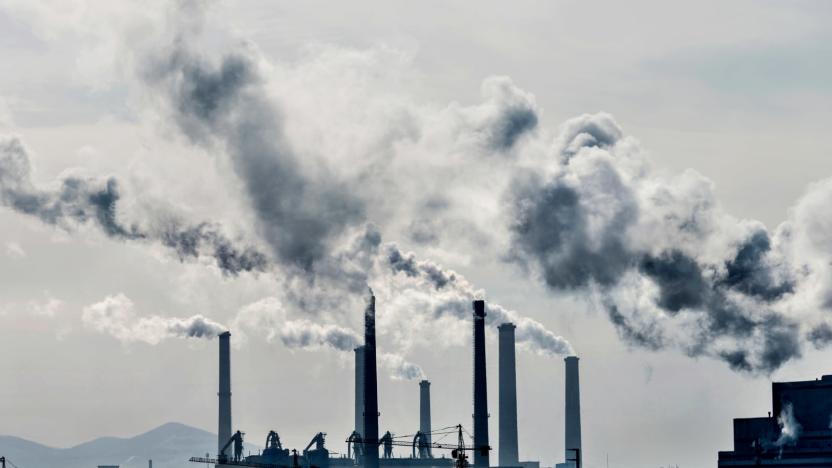
EPA finalizes Trump administration’s coal-friendly climate plan
Today, the EPA finalized the Trump administration's Affordable Clean Energy (ACE) plan, effectively rolling back Obama-era policies to address climate change. The Obama administration's Clean Power Plan (CPP) set national goals for reducing carbon dioxide emissions. States could decide how to meet those goals, but the targets were strict enough that many states were expected to close coal plants. As NPR reports, the Trump administration's approach will be to regulate the emissions of individual power plants in order to help them stay in business longer.
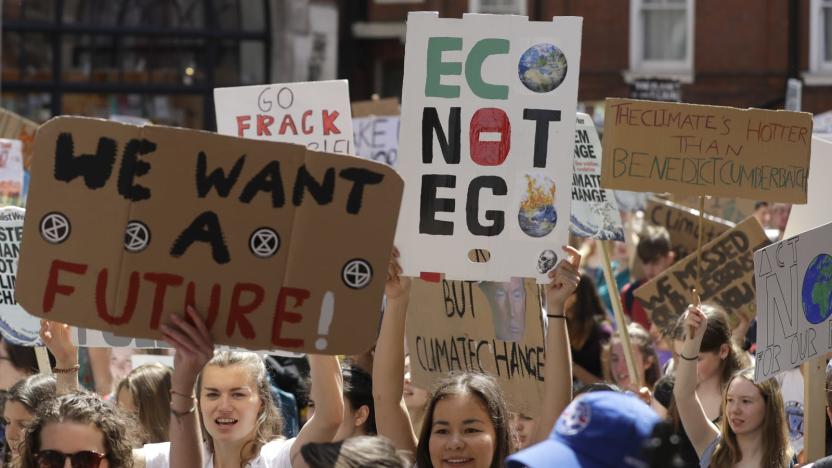
UK proposal would eliminate greenhouse gas emissions by 2050
The UK is setting firmer environmental targets in the wake of large-scale climate protests. Outgoing Prime Minister Theresa May has proposed legislation that would cut greenhouse gas emissions to zero by 2050 -- the "first major economy to do so," she claimed. The country already has a law requiring an 80 percent emissions cut by that point, but this is clearly more ambitious.

Amazon employees call for a company-wide climate change plan
Amazon is the next tech giant to face mounting calls to action from its employees. A total of 3,541 employees have published an open letter asking Jeff Bezos and other leaders to adopt a shareholder resolution and release a "company-wide" climate change plan meeting their terms. Some are clarifications of existing initiatives, while others would require a significant shake-up in its existing strategy.

EU aims to be 'climate neutral' by 2050
European countries have already vowed to take significant steps to curb their effect on the climate, but they're now setting a more ambitious target. The European Union now hopes to achieve a "climate neutral" economy by 2050 -- that is, zero net greenhouse gas emissions. The strategy would involve wider use of renewable energy (80 percent by 2050), a shift to electric transportation and 'decarbonizing' industry.

The US government knows climate change is ravaging the planet
Hurricane Katrina claimed nearly 2,000 lives when it struck the Gulf Coast of the United States in 2005, submerging New Orleans in floodwater and devastating the region for more than a decade. It was the costliest natural disaster in US history, causing more than $160 billion in damage. Hurricane Katrina was the result of human-driven climate change.
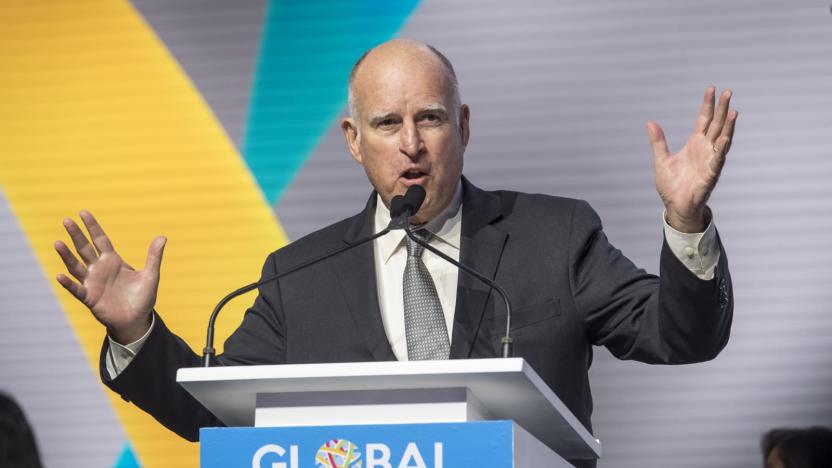
California plans to launch its own climate satellite
The current White House doesn't accept climate science, and California is worried that this may lead to NASA switching off climate probes under pressure from President Trump. The state's solution? Build its own probe. In a speech at the Global Climate Action Summit, Governor Jerry Brown declared that California would launch its "own damn satellite" to detect pollution and address climate change. While he hinted at the possibility in 2016 remarks, it's more than just an allusion this time. The state is working with Planet Labs on the project, and will rely on the California Air Resources Board for further help.
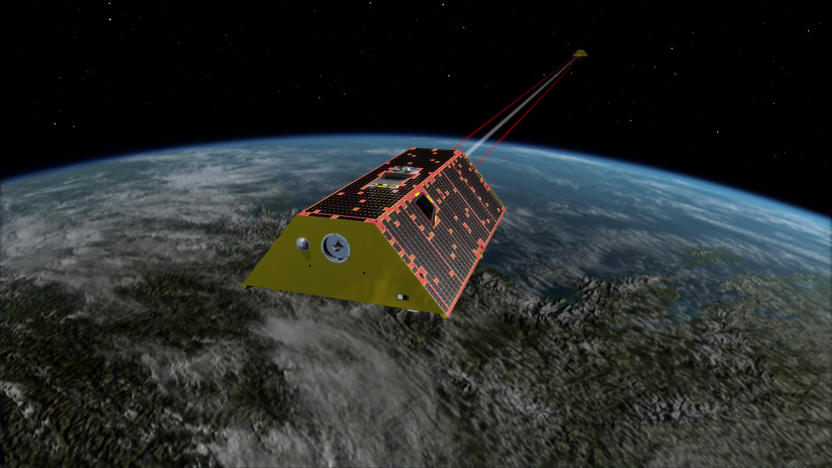
NASA's new climate science satellites switch on their lasers
NASA's new climate-monitoring satellites, which SpaceX ferried to orbit in May, are almost ready to keep an eye on our planet's ice sheets, atmosphere and ocean levels. On June 13th, the twin Gravity Recovery and Climate Experiment Follow-On (GRACE-FO) satellites switched on their lasers in search of one another for the first time. Those lasers will keep the satellites connected to each other while they orbit the Earth, tracking the changes in distance between them brought about by variations in our planet's gravitational field. That data, in turn, will help scientists better understand and monitor the thinning of the ice sheets, rising sea levels and even the flow of magma underground.
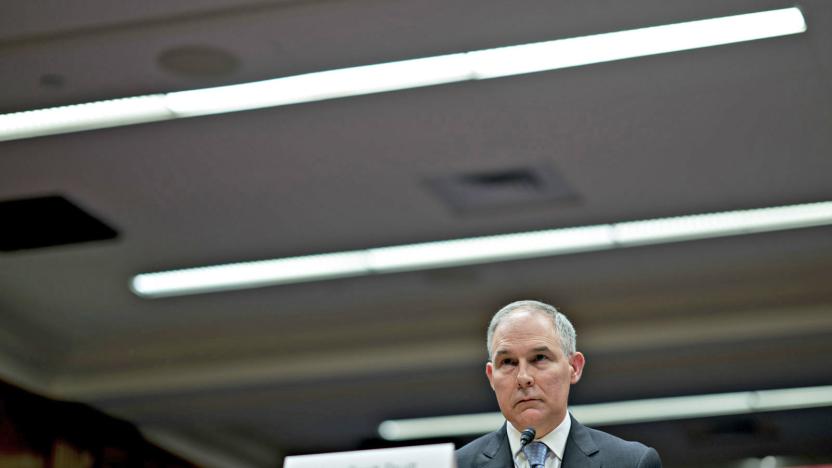
11 states sue EPA over attempt to reverse ban on ozone-harming HFCs
The Scott Pruitt-era EPA is facing yet more legal action over its attempts at reversing US environmental regulations. A group of 11 states (including New York and California) and the District of Columbia have sued the EPA for violating the Clean Air Act by "effectively" lifting a ban on climate-changing hydrofluorocarbons (HFCs). The states contend that the agency's April "guidance" document illegally removed the entire HFC ban rather than going through the necessary public rulemaking process.

NASA wants your pictures of clouds to verify its satellites’ data
NASA announced this week that it's looking for some citizen scientists to help out with a project. Six orbiting instruments make up NASA's Clouds and the Earth's Radiant Energy System (CERES) project and they are used to study Earth's climate and the role clouds play in climate change. But sometimes it's hard for these instruments to differentiate clouds from other Earthly things. For example, NASA says that thin, wispy cirrus clouds and snow can easily be confused because they're both cold and bright. Differentiation gets even more difficult when these clouds hang out above patches of snow. And that's where citizen scientists come in.
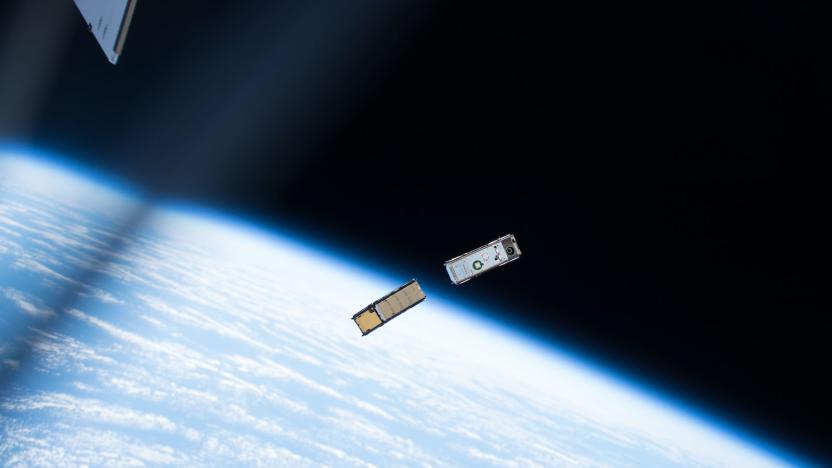
A tiny NASA satellite mapped Earth’s atmospheric ice
Last May, NASA launched a small, bread loaf-sized satellite into orbit around Earth. Dubbed IceCube, the satellite's mission was to measure cloud ice in our planet's atmosphere -- a challenging task that researchers have previously only been able to perform in limited ways. Sensing ice clouds requires measurements at a range of frequency bands but particularly within what are known as submillimeter wavelengths, or electromagnetic wavelengths that fall in between those of microwave and infrared waves. The problem is, instruments that can take those kinds of measurements have previously had to be on board high-altitude research aircraft, meaning measurements were limited to the areas where those aircraft were flying. Launching a satellite that can perform those measurements could open up what parts of the atmosphere can be studied, and that's where IceCube comes in.
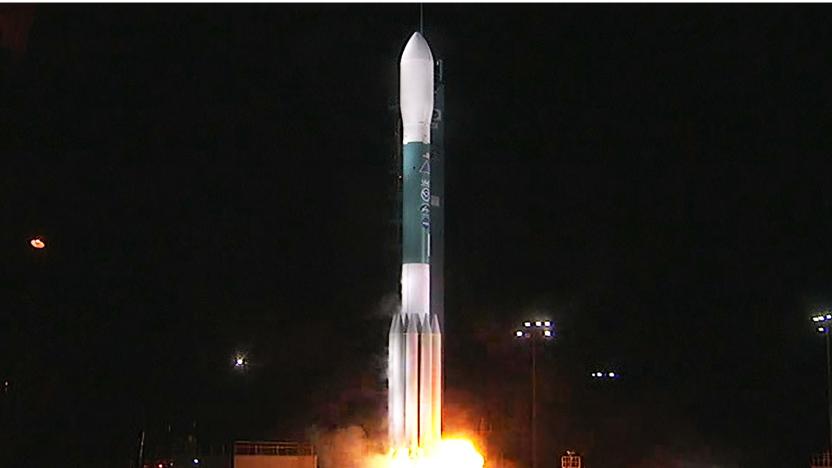
NASA satellite launch promises accurate week-long forecasts
NASA and NOAA know that multi-day weather forecasts can be crucial to tracking hurricanes and their aftermath, and they're about to significantly boost the reliability of those forecasts. They just launched JPSS-1 (Joint Polar Satellite System-1), the first of a series of NOAA satellites that should improve the accuracy of weather forecasts extending as long as a whole week. It includes five upgraded instruments (including an infrared imaging sensor and a microwave sounder) that can track weather-influencing factors with exacting detail, such as atmospheric temperature, clouds, ice cover, ocean colors and volcanic ash.
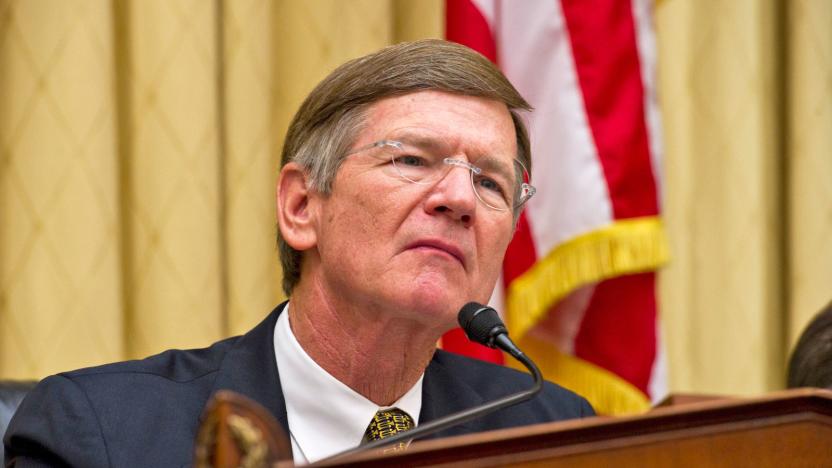
Climate change-denying House science chairman is retiring
Lamar Smith, the chairman of the US House of Representatives' Committee on Science, Space and Technology, has announced that he'll retire when his term ends next year. The Texas representative, an avid climate change denier, has been a controversial and, to many, an unwelcome head of the committee. During his tenure, he has published multiple opinion pieces on climate change, including some that claim it isn't a reality and others that state it's real but beneficial.





